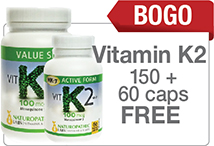Ghee vs Butter: Understanding Their Differences
Updated Mar. 26th, 2024 | Read Time: 3 Minutes | What You Will Learn:
- Discover The Key Uses For Ghee
- Cooking With Ghee vs Butter
- Religious and Medicinal Practices
- Nutrients Found in Ghee
- Shopping Tips For Quality Ghee Products
- Different Ways To Use Ghee vs Butter
While on the surface, ghee and butter seem similar, deep down there are key differences between the two. When taking a closer look at ghee vs butter, you'll learn that ghee is a form of clarified butter that is commonly used for cooking in South Asia and the Middle East. In India and Pakistan, ghee is commonly served alongside other foods and is used in cooking much like butter is used in North America; however, since it's been clarified to remove milk solids and water content, ghee has a much higher smoke point.
To make ghee, butter is simmered until the foam on the top becomes settled sediment at the bottom and the liquid becomes clear and golden. The sediment is filtered out, leaving pure ghee behind. This ghee becomes solid at room temperature.
Other forms of clarified butter are used in cooking around the world. In North America, clarified butter is often called “drawn butter” and is served as a dipping sauce for shellfish like lobster and crab.
Discover The Key Uses For Ghee
Cooking With Ghee vs Butter
Ghee is commonly used for cooking in several countries around the world. It is ideal for deep frying because it has a much higher smoking point than most vegetable oils, including butter, which means it will not overheat and oxidize as quickly as most vegetable oils. Ghee is also commonly used in baking, as a glaze for bread, and in sauces to make a more rich flavour than other oils.
Religious and Medicinal Practices
Religions that hold cows sacred often use ghee because it is sourced from cow’s milk, and thus it is commonly found in Vedic and Hindu rituals. It is also used as the main ingredient in many Ayurvedic medicines. It is used in this way to maintain healthy skin, digestion and mental function. Western medicine has found ghee to stimulate the secretion of digestive juices like stomach acid and bile. This can help to reduce blood cholesterol levels by promoting its release into the intestines. Ghee is also used topically on burns and blisters and to help soften the skin.
Nutrients Found in Ghee
The extraction process for ghee removes the milk solids and water, leaving behind an almost pure fat. This leaves near negligible amounts of lactose and casein, which allows ghee to often be eaten by those with lactose intolerance or mild milk allergy without negative effects. One tablespoon of ghee contains 12.7g of fat, almost 8g of which is saturated fat, and it also contains 33mg of cholesterol. It also contains essential fatty acids such as omega-3 and omega-6 fats that can provide anti-inflammatory benefits.
Shopping Tips For Quality Ghee Products
There are imitation ghee products on the market that use partially hydrogenated vegetable oil which is loosely called vegetable ghee (vanaspati or dalda ghee). These products are often falsely advertised and can contain trans fat, and hydrogenated oils that can be detrimental to health. Genuine ghee is often called desi (country-made) ghee or asli (genuine) ghee to distinguish it from vegetable ghee.
Different Ways To Use Ghee vs Butter
Ghee can be used in cooking in much the same manner as butter is used in most dishes. It is often used to fry foods because of its high smoking point. It has a long shelf life and can be kept at room temperature as long as it is in an airtight container. Be sure to purchase genuine (desi or asli) ghee to avoid contamination with harmful oils.























I have been hearing people talk about ghee for a few years now but never fully understood what it was, even when I would see ghee in grocery stores I would simply glance at it and vaguely remember people using it as alternatives in their cooking because it is supposed to be good for you. This article was definitely satisfying in terms of answering my questions around ghee! Thank you so much for sharing, this was very informative! I find it so interesting that ghee has been around for so long and it is referred to as clarified butter, I guess you could even make it at your home too with some trial and error but I think for the first time I would probably want to buy the authentic ghee instead to make sure I get the full experience!
Hello Health Nut,
Happy this article helped answer your questions regarding Ghee!